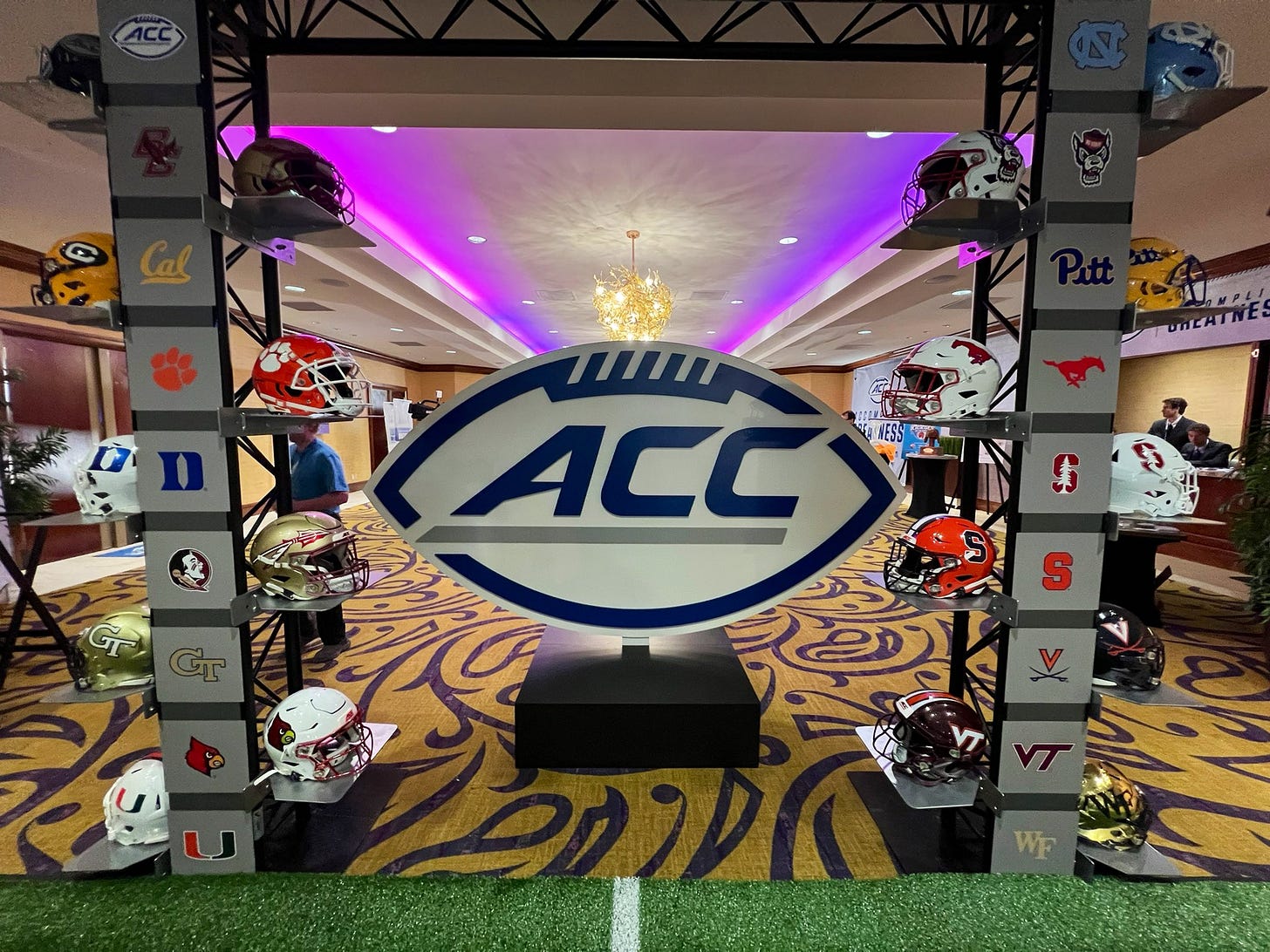Clemson and Florida State reportedly unlikely to leave ACC by 2025, giving Cal breathing room
This would keep Clemson and Florida State in the ACC through at least 2025-26.
A bit of odds and ends regarding the ongoing status of the legal conflicts brewing in the ACC.
Pete Thamel of ESPN reported that despite many rumors circulating about their discussions with the Big 12 (with Big Ten and SEC avenues reportedly closed), Clemson and Florida State remain unlikely to leave the conference as lawsuits remain unresolved regarding their conflict with the ACC Grant of Rights.
Have been told by multiple sources that there’s no expectation for Florida State or Clemson to notify the ACC they intend to leave by the Aug. 15 deadline to depart after the upcoming year. That’s the deadline to declare intentions to exit for the 2025-26 year.
They are both in the throes of ongoing legal battles regarding the ACC’s grant of rights and withdrawal fees, so there’s been little expectation of imminent movement.
Again, breaking the ACC Grant of Rights (set in stone until 2036) for either program without a legal ruling in their favor would mean Florida State and Clemson would have to pay a $500 million-plus exit fee. That is unlikely to be a fee that either program could afford to pony up for.
And the ACC seems intent on keeping this in court for as long as possible, as they should. Commissioner Jim Phillips spoke on the subject at ACC Media Day.
"I can state that we will fight to protect the ACC and our members for as long as it takes," Phillips said. "We are confident in this league and that it will remain a premier conference in college athletics for the long-term future. These disputes continue to be extremely damaging, disruptive and incredibly harmful to the league as well as overshadowing our student-athletes and the incredible successes taking place on the field and within the conference."
Clemson and Florida State continue to hope they will find the legal leeway to find an exit hatch out of the ACC. But for now, that isn’t likely to happen.
Write for California has covered the Grant of Rights lawsuits throughout the offseason (the latest update is here, and many previous updates can be found here). If you want the executive summary of those pieces, David Hale of ESPN had a very extensive article detailing the arguments on both sides. A small subsection of it is below:
Both the schools and the league argue the first article of the grant of rights explains their case: "Each of the member institutions hereby irrevocably and exclusively grants to the conference during the term ... all rights necessary for the conference to perform the contractual obligations of the conference expressly set forth in the ESPN agreement, regardless of whether such member institution remains a member of the conference during the entirety of the term."
The ACC suggests the language clearly binds Florida State and Clemson's media rights to the conference, regardless of whether it remains a member or not.
But Clemson, in its suit, counters that, should it depart the ACC, the league's contractual obligations to ESPN -- which, according to multiple sources, includes a minimum of 15 member schools -- would not be violated since the league would still exceed that limit, hence the ACC suffers no financial harm during the course of the agreement if the Tigers go elsewhere. Moreover, while the multimedia agreement is a separate document, Clemson contends its language does "not require the ACC to provide ESPN with the rights to games in which the home team is not a member of the ACC," so if the Tigers leave the conference, there's no violation of their contractual obligations, which in turn means the conference is still meeting its obligations to ESPN, thus still fulfilling the terms of the grant of rights.
What does a "game" mean? Do all "obligations" have to be explicit or is a school's membership implied? Does one legal document impact the other?
These are questions that loom large -- for Clemson, Florida State and around the sports media landscape.
Which side is right?
To simply put it, both sides are dug in, and until a detailed legal ruling comes in, both Florida State and Clemson remain trapped in this unhappy marriage for the foreseeable future. But the willingness to fight will likely mean that their exit will probably come up much sooner than 2036.
And because of that uncertainty, Cal must keep its options open, and get the ball moving on planning for a future beyond the ACC sooner rather than later. The Sturdy Golden Bears cannot afford to be caught with their pants down a second time.



Would that make Chancellor Lyons our collective belt? He is going to ensure our pants never fall down! Go Bears!
I think one of the biggest factors for athletic departments on the west coast is a general lack of interest in college sports. There are too many casual fans in that region of the country, and they often aren't willing to purchase tickets and dedicate half a day to a sporting event. Perhaps it's due to all the cool activities available in that region, or maybe it's due to a lack of disposable income based on housing prices. Regardless of the reason(s), west coast fans are simply too apathetic in general. That factor, combined with their time zone, is difficult to deal with.